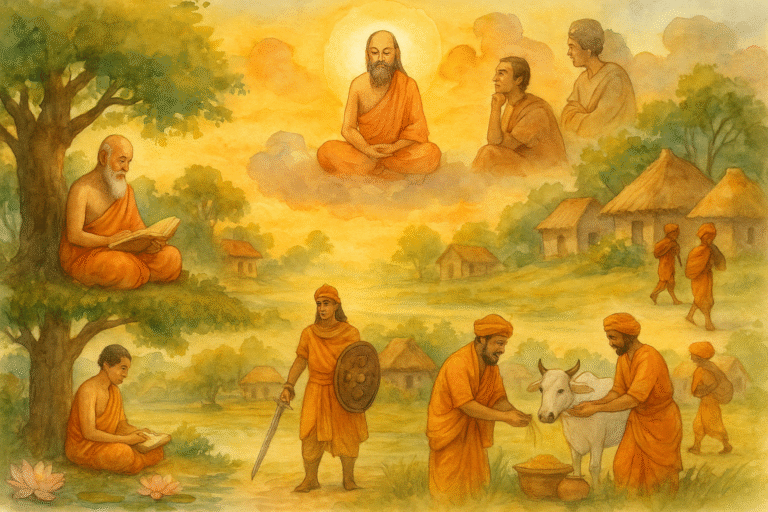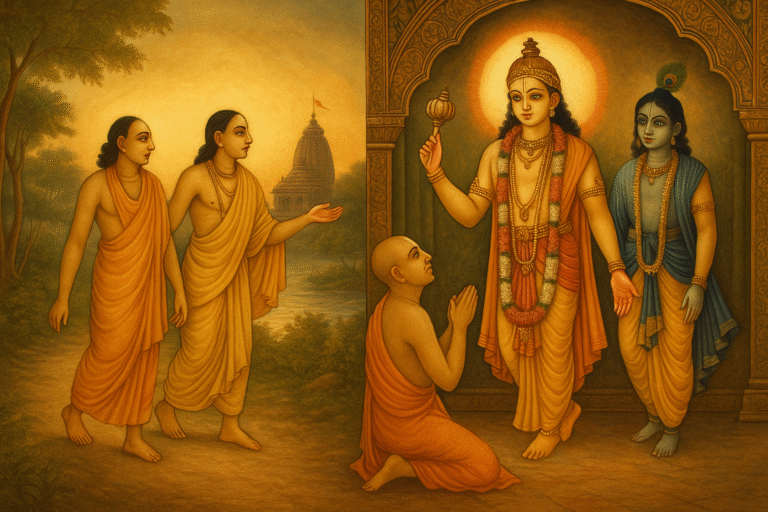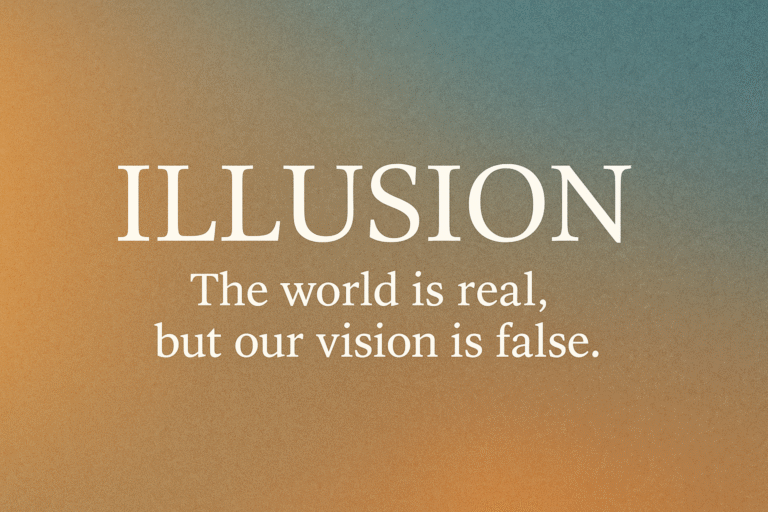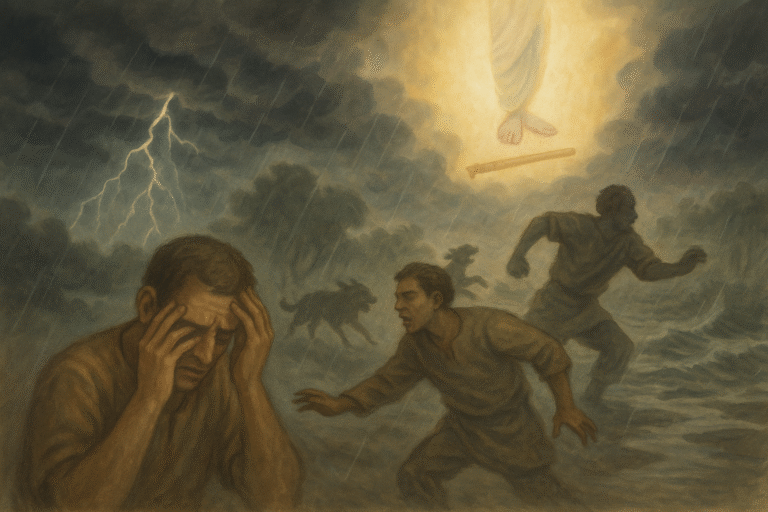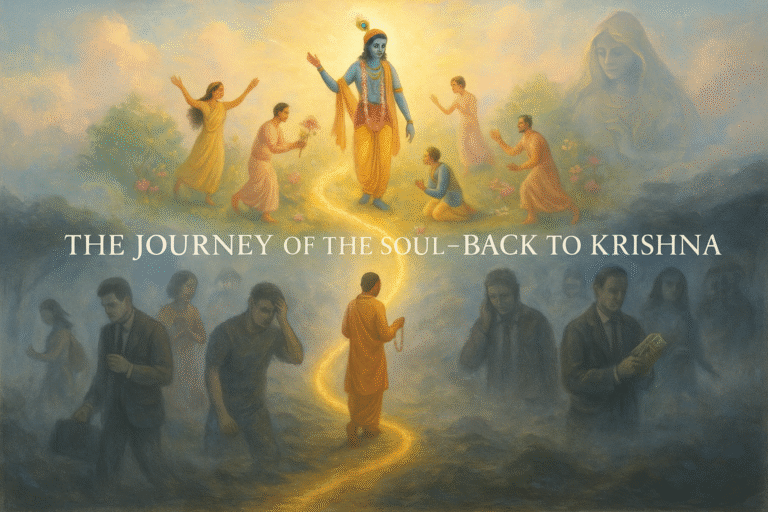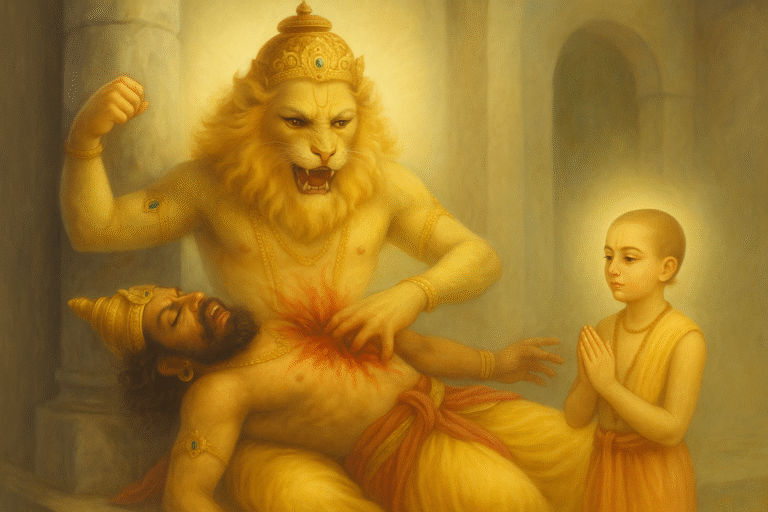The Secret of Action: How the Soul, Nature, and God Shape Every Deed
Are you really the one doing all your actions — or is someone else at play behind the scenes? Drawing from the Bhagavad Gita and Vedantic philosophy, this post explores how the soul, material nature, and the Supreme Lord work together in every action. Learn who truly deserves the credit (or blame), and how this understanding can free you from karma and lead to liberation.
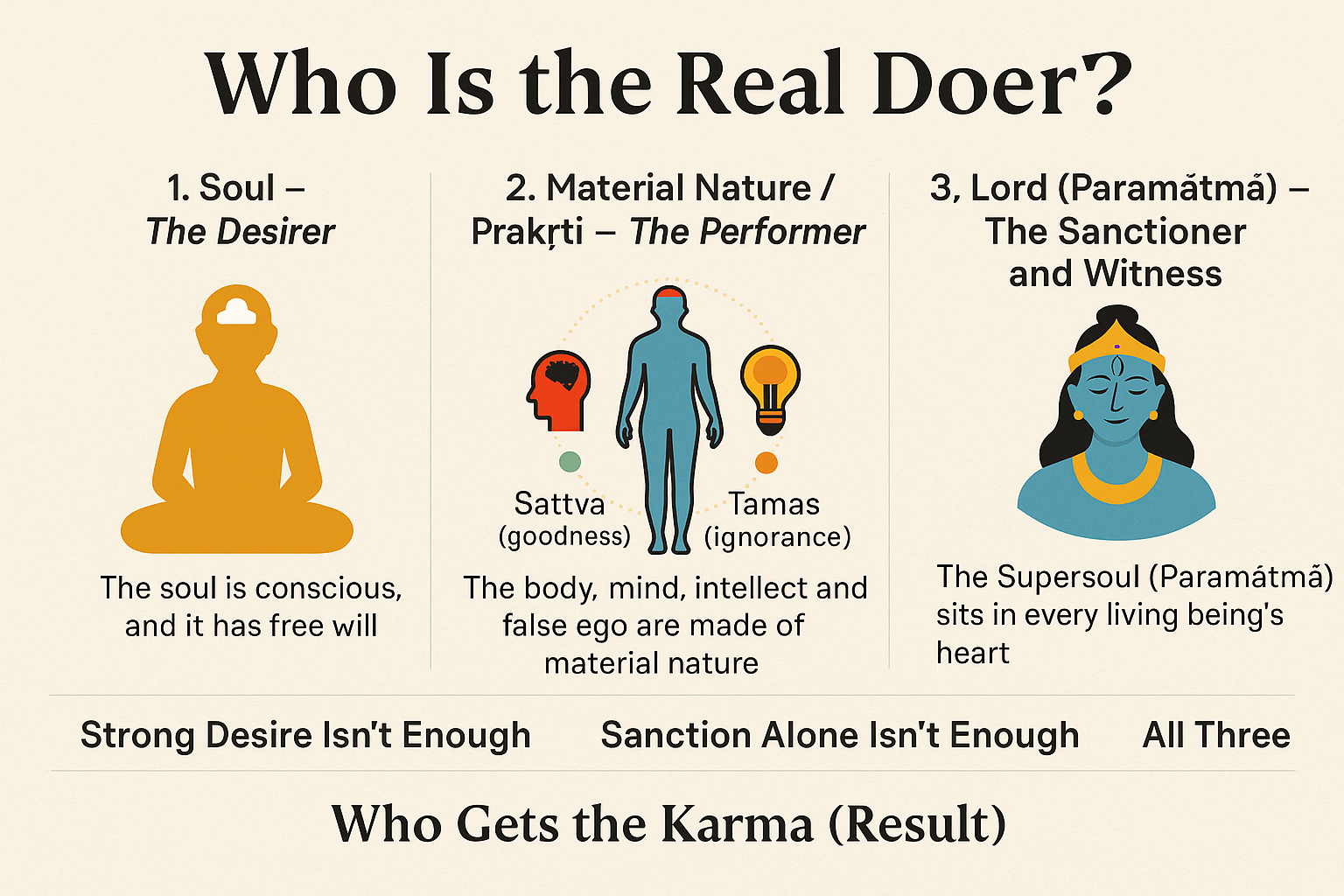
🕉️ Who Is the Real Doer?
Understanding Karma, Action, and Free Will Through the Bhagavad Gita
We often say things like, “I did it,” “It’s my achievement,” or “I failed.” But Bhagavad Gita challenges this basic assumption by asking a profound question:
“Are you really the doer?”
Understanding this transforms our perception of karma, responsibility, and liberation. Let’s explore this truth from the lens of scriptures — especially the Bhagavad Gita and Vedanta philosophy.
🔍 The 3 Forces Involved in Every Action
Every action in this world isn’t as simple as “I did it.” According to the Bhagavad Gita, three distinct forces collaborate to manifest any action:
1. 🧘♂️ Soul (Jīva) — The Desirer
- The soul is eternal, conscious, and a part of the Supreme Lord (BG 15.7).
- It possesses free will, a tiny spark of the Lord’s infinite independence.
- It initiates actions by desiring something.
- But the soul is dependent on other energies to fulfill that desire.
📖 Bhagavad Gita 13.22
“puruṣaḥ prakṛti-stho hi bhuṅkte prakṛti-jān guṇān…”
“The living entity, situated in material nature, enjoys the modes born of nature.”
✅ Key Point: The soul desires, but cannot act directly — it is not the physical doer.
2. 🌿 Material Nature (Prakṛti) — The Performer
- The body, mind, intellect, and ego are products of material energy.
- These execute actions based on the influence of the three guṇas:
- Sattva – goodness and clarity,
- Rajas – passion and desire,
- Tamas – ignorance and inertia.
- Material nature acts like a machine, responding to the soul’s intentions.
📖 Bhagavad Gita 3.27
“Prakṛteḥ kriyamāṇāni guṇaiḥ karmāṇi sarvaśaḥ…”
“All actions are performed by the modes of nature, but one whose mind is bewildered by false ego thinks, ‘I am the doer.’”
✅ Key Point: Nature performs all actions — the soul only desires.
3. 🔱 Lord (Paramātmā) — The Sanctioner and Witness
- The Supersoul (Paramātmā) resides in every heart.
- He observes, sanctions, and regulates the actions of both soul and material nature.
- Nothing moves without His will.
📖 Bhagavad Gita 13.23
“upadraṣṭānumantā ca bhartā bhoktā maheśvaraḥ…”
“Within this body, the Supreme Lord is the overseer, permitter, supporter, and the ultimate enjoyer.”
✅ Key Point: Without God’s sanction, no action can take place, even if the soul desires and nature is ready.
📌 Key Observations
1. ❗ Strong Desire Isn’t Enough
Even if we desire intensely, if the Lord does not sanction, the action won’t occur.
This may happen due to:
- Past karma
- Protection from harm
- The Lord’s higher plan
2. ❗ Sanction Alone Isn’t Enough
Even if the Lord sanctions a desire, the action may not manifest if:
- The body isn’t capable,
- Time is not ripe,
- External resources are missing.
3. ✅ All Three Must Align
Only when:
- The soul desires,
- The Lord sanctions, and
- Prakṛti acts —
then, the action becomes reality.
⚖️ Who Gets the Karma (Result)?
This is the key point:
Although the soul doesn’t directly perform the physical action, it is held responsible because:
- It initiated the desire,
- It identified with the action,
- It attached itself to the outcome.
📖 Bhagavad Gita 13.21
“kāraṇaṁ guṇa-saṅgo’sya sad-asad-yoni-janmasu”
“The cause of the living entity’s suffering or enjoyment is attachment to the modes of material nature.”
✅ Result: This attachment creates karma, leading to bondage and rebirth.
📖 Case 1: When the Person Is Not Soul-Aware
- The soul is in ignorance and thinks:
“I am the body. I am the mind.” - The mind, influenced by karma and guṇas, creates conditioned desires like:
- “I want to enjoy.”
- “I want power, prestige, or revenge.”
- Material nature executes the desire.
- The soul, identifying with the action, becomes bound by karma.
🔚 Outcome: Continuous cycle of action–reaction–rebirth (samsara).
🌟 Case 2: When the Person Is Soul-Aware
- The soul knows: “I am not this body or mind. I am the eternal servant of Krishna.”
- Desire becomes spiritual: “Let me serve Krishna. Let me do my duty without ego.”
- The person acts without attachment, offering all results to the Lord.
📖 Bhagavad Gita 5.8–9
“naiva kiñcit karomi iti yukto manyeta tattva-vit”
“The wise person, knowing the truth, thinks, ‘I do nothing at all’ even while acting.”
🔚 Outcome: Such action is not binding. It becomes karma-free and leads to liberation (mokṣa).
🧘 Conclusion: Who Is the Real Doer?
| Force | Role | Doer? |
|---|---|---|
| Soul (Jīva) | Desires | Indirect Doer – gets karma |
| Material Nature (Prakṛti) | Executes | Instrumental Doer |
| Paramātmā (Lord) | Sanctions | Supreme Controller, not responsible for karma |
🧡 When the soul is in ignorance, it wrongly claims doership and suffers.
When the soul is awakened, it offers its will to Krishna, acts as His instrument, and becomes free.
🙏 Final Words for Devotees
Let us align our desires not with ego, but with devotion.
Let us remember:
“I am not the doer. I am not the enjoyer. I am the eternal servant of the Lord.”
When our desires become pure and devotional, the Lord not only sanctions them — He makes our life divine.

